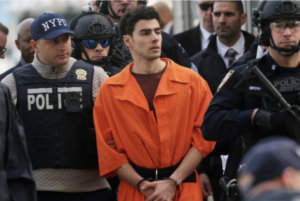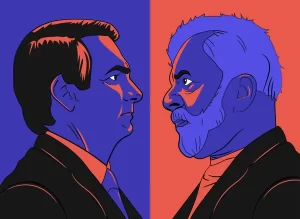On November 21, 2024, the International Criminal Court (ICC) took an unprecedented step. It issued arrest warrants for Israeli Prime Minister Benjamin Netanyahu, Defense Minister Yoav Gallant, and Mohammed Deif, leader Hamas soldier. This historic decision marks a major turning point in the Israeli-Palestinian conflict. It also raises crucial questions about the responsibility of leaders in times of war.
What Are The Charges Brought By The ICC?
The Court accuses Netanyahu and Gallant of war crimes. These include using starvation as a method of warfare, murder and persecution. The institution underlines their superior civil responsibility, considering that they deliberately directed attacks against civilians.
Mohammed Deif, for his part, is accused of crimes against humanity, including murder, extermination, torture and sexual violence. He is also suspected of war crimes, such as murder, cruel treatment and hostage-taking.
For further information, you can read : ‘Human Rights Watch Accuses Israel of Crimes Against Humanity and Ethnic Cleansing in Gaza’ , by Marie Mathelier.
The Role Of The ICC
The International Criminal Court was established by the Rome Statute in 2002. This court is a permanent judicial institution. The goal is to try individuals responsible for the most serious crimes affecting the international community. It includes war crimes, crimes against humanity, genocide and crimes of aggression. Its aim is to fill the gaps left by national courts. indeed, they are often incapable or reluctant to try such crimes.
In this case, the ICC exercises jurisdiction over the Palestinian territories, including Gaza and the West Bank, in accordance with its legal status. ICC Prosecutor Karim Khan urged member states to cooperate in executing these warrants. However, it is important to remember that the ICC does not have its own coercive means. Indeed, it depends on the will of States parties to arrest suspects.
A Decision With International Implications
The publication of these arrest warrants has provoked varied and polarized reactions.
In Israel, this decision has been strongly criticized. The Israeli government denounced an « anti-Semitic attack » and called the process a « modern Dreyfus trial ». President Isaac Herzog said that the ICC’s action had turned universal justice into a « universal farce ». On the Hamas side, the mandates for Netanyahu and Gallant were welcomed as « not important towards justice ». However, the organization is also concerned by the charges against Mohammed Deif. This illustrates the complexity of the responsibilities in this conflict.
Several countries, including the U.S., Argentina and Hungary, have publicly rejected the ICC’s decision. They argue that it violates Israel’s right to defend itself against terrorist threats. The U.S. government has explicitly stated that it “fundamentally rejects” the warrants, expressing its concerns about procedural errors and the ICC’s jurisdiction in this matter.
However, countries such as Norway, Sweden and members of the European Union have affirmed their commitment to comply with the ICC’s decisions, stressing that these mandates must be respected and implemented. Josep Borrell, the EU’s foreign policy chief, insisted that the ICC’s decisions were binding and should be implemented by all member states.
However, countries like Germany and France have taken a more cautious stance. They recognize the authority of the ICC while refraining from committing to specific measures regarding the arrest of Netanyahu or Gallant if they enter their territory.
International Justice Facing Challenges
While this decision reflects the ICC’s commitment to holding leaders accountable, it also highlights the structural challenges of international justice. The polarization of responses, lack of ICC-specific enforcement mechanisms and politicization of such procedures illustrate the obstacles faced by the Court.
In the context of the Israeli-Palestinian conflict, this initiative could mark a step towards the accountability of the parties involved. However, it also risks to increase international tensions.
Finally, this ICC decision marks a turning point in the history of international law and could have significant implications for how armed conflicts are conducted and how leaders are held accountable for their wartime actions. However, the effective application of these arrest warrants remains uncertain given the divisions in the international community and the refusal of some countries to cooperate with the ICC.










